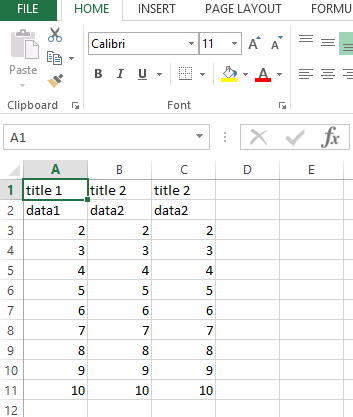How to Quickly Go to the Last Row in Excel Using Keyboard Shortcuts
In this Excel tutorial lesson, I will guide you through the different ways to quickly get to the last row of Excel.
Last row
We can jump to the last row of filled data row in Excel by choosing the first or any filled cell in that row and clicking Ctrl + Down arrow key.
Here is a practical example of using the Ctrl + Down keyboard shortcut for last row navigation.
To demonstrate Excel cell selection and keyboard navigation, start by selecting the first cell in your data range for keyboard shortcut execution.

After clicking the Ctrl + Down arrow key:

It selects the last row, which is cell A11. This is a quick and convenient way to navigate to the last row in your Excel sheet, and it saves you from having to manually scroll through the entire spreadsheet to find the last row.
Last column
We can go to the last column of filled data column in Excel by choosing the first cell in that row and clicking Ctrl + Right arrow key.
Example.
Selecting the first cell of Row1:

After clicking Ctrl + Right arrow key:

It selects the last filled column, which is Cell C1.
Last column and row
By clicking Ctrl + End keys, you can jump to the last filled row and the last filled column together.
Selecting the first cell:

After clicking Ctrl + End:

VBA code
We can also use VBA code to select the last row of a cell, which is the most used part in any VBA code, as shown in the following code:
LastRowSelected = Activesheet.range(“A65000”).end(xlup).row
In this, the variable LastRowSelected will have the value of the last filled row, which is 11 in this case. You can use this macro example as shown in the below attached sheet also:
Sub macro1()
LastRowSelected =
ActiveSheet.Range(“A65000”).
End(xlUp).Row
MsgBox LastRowSelected
End Sub

Please find the attached file with the required code.




Leave a Reply